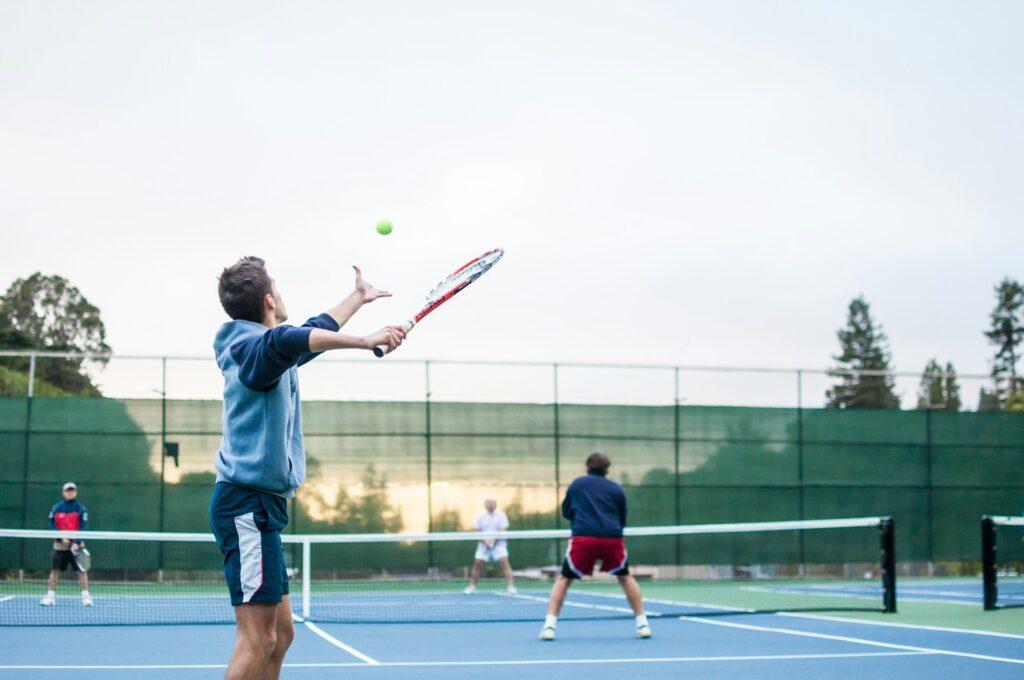
Why The Mental Game Is Essential In Tennis
Tennis is a sport where self-reliance on the court takes center stage. Every moment is colored by internal dialogue: Do players dwell on past mistakes or press forward confidently? Mental preparation and fortitude often determine whether athletes can hold their nerve during a match’s turning point. Highly regarded players—including those like Alexandra Stevenson—have repeatedly emphasized that the mind is the greatest asset a competitor can bring to the baseline. When two athletes have similar technical skills and fitness, the mind separates a winner from a runner-up.
This element isn’t reserved just for the pros—amateurs, juniors, and recreational players face similar psychological hurdles. Maintaining composure, emotional intelligence, and single-minded focus can often carry players through challenging matches when physical ability alone may falter. In practice and competition, triumph usually goes to the player who adapts fastest and effectively manages emotions.
Game-Day Preparation: Inside The Minds Of Players
Elite tennis athletes often discuss the hours before a match as a time of intense mental focus. For these players, confidence starts well before the first serve is struck. Their multi-layered preparation involves not just stretching and warm-ups, but rituals that prepare the mind for competition. They employ routine visualization—imagining how points might unfold and mentally rehearsing responses to adversity—which helps convert nerves into positive energy.
Beyond pro-level training, even club players can benefit from establishing game-day rituals. Some repeat affirmations or practice controlled breathing to manage nerves, while others develop a personalized warm-up playlist to get into the zone. These rituals aren’t superstition—they act as psychological anchors, offering stability and comfort under pressure. Many tennis experts believe this mental groundwork can smooth the transition from practice court to match play, empowering players to deliver their best when it matters most.
Building Resilience And Bouncing Back From Losses
Losses are the inevitable flipside of competition, but what happens after defeat separates lasting success from fleeting victories. Mentally strong tennis players understand setbacks as part of their long-term development. Instead of ruminating over missed opportunities, they dissect their performances with curiosity, identifying patterns, strengths, and areas for growth. This approach, known as adopting a “growth mindset,” is paramount to improvement and resilience.
Real-world examples abound, from rising juniors to established professionals. After a disappointing loss, resilient players channel their emotions into motivation for the next tournament instead of withdrawing. They review their matches analytically, journaling or discussing points in detail with coaches and mentors. That ability to learn quickly, reset, and seek incremental progress is common among tennis enthusiasts who build lasting confidence on the court.
Techniques For Managing Stress And Pressure
- Breathing exercises: Diaphragmatic breathing can lower anxiety and help players regain composure between points.
- Mindfulness: Focusing on the present moment, observing thoughts without judgment, and returning attention to the game.
- Journaling: Documenting emotions and key match events to process experiences and track improvements.
- Positive self-talk: Using encouraging internal dialogue to boost confidence and steady nerves during tense matches.
Tennis matches are filled with moments that test a player’s ability to handle stress—think of sudden momentum shifts, rowdy crowds, or grueling tie-breaks. Players who build stress management routines perform better and enjoy the game more deeply. Scientific research shows that regular use of these techniques makes athletes more adaptable and less likely to experience mental burnout. The good news? These aren’t exclusive to pros. Anyone can incorporate these tools and see tangible benefits within weeks of dedicated practice.
Mental Exercises To Include In Your Practice Routine
- Visualization involves “seeing” yourself successfully perform your service motion or deep rally exchanges. With repetition, visualization becomes a mental dress rehearsal for match situations, boosting self-assurance when similar moments arrive during competition.
- Routine Building: Preparing a checklist—meals, stretches, equipment, positive routines—reduces last-minute doubts and creates continuity, especially during unpredictable tournament schedules.
- Focus Drills: Simulate noisy environments by playing background music or inviting a friend to offer gentle distractions during practice. These drills condition your mind to shut out irrelevancies and maintain sharpness.
- Adversity Simulation: Purposefully start games down a break or recreate high-pressure deuce points during training. Facing these “stress tests” prepares your mind and body for challenging situations in actual matches.
Coaches endorse these exercises because mental agility is as trainable as technical skill. Making mental training a part of every session brings noticeable improvements in focus, decision-making, and resilience.
What The Science Says About Mental Performance In Tennis
Academic findings and sports psychology research confirm the importance of mental work in tennis. Studies show that athletes who regularly engage in mental skills training, such as guided imagery and positive feedback, enjoy measurable gains in match consistency and faster recovery from setbacks. Even short-term interventions—like brief mindfulness sessions before a match—can reduce errors and enhance tactical awareness.
Many of the world’s best players are known to work with mental coaches. They develop psychological habits that allow them to reset quickly after mistakes and remain poised at critical points of the match. Ultimately, these habits are transferable; recreational players who embrace these lessons experience more enjoyment, fewer slumps, and a path to continual improvement.
Real-Life Examples Of Tennis Stars Overcoming The Odds
The professional circuit is full of inspiring comeback stories. Consider the legends who have erased match points or returned from injuries to claim victory. These triumphs are a testament to athleticism and the power of unwavering self-belief and mental discipline. Grand Slam champions frequently cite resilience, adaptability, and mental training as keys to their most significant wins.
For example, players who lost crucial matches have spoken openly about turning those disappointments into fuel for greater focus and commitment. These athletes’ stories encourage tennis fans at any level: with a strong mind, setbacks become stepping stones, and every match—win or lose—becomes an opportunity to refine your competitive edge.
Further Resources To Improve Your Mental Skills
More support than ever exists for those striving to grow as mentally strong tennis players. Resources include online masterclasses by sports psychologists, guided meditations created explicitly for athletes, and books focused on performance mindset. Coaches and clubs increasingly recognize the value of building an on-court “toolkit” for handling emotional challenges.
Taking inspiration from experts and champions, players who approach tennis with both physical gusto and mental curiosity are the ones who truly thrive on the scorecard and beyond. By using proven tools and seeking expert advice from reputable sources, tennis players at every level can play with greater enjoyment and resilience.






